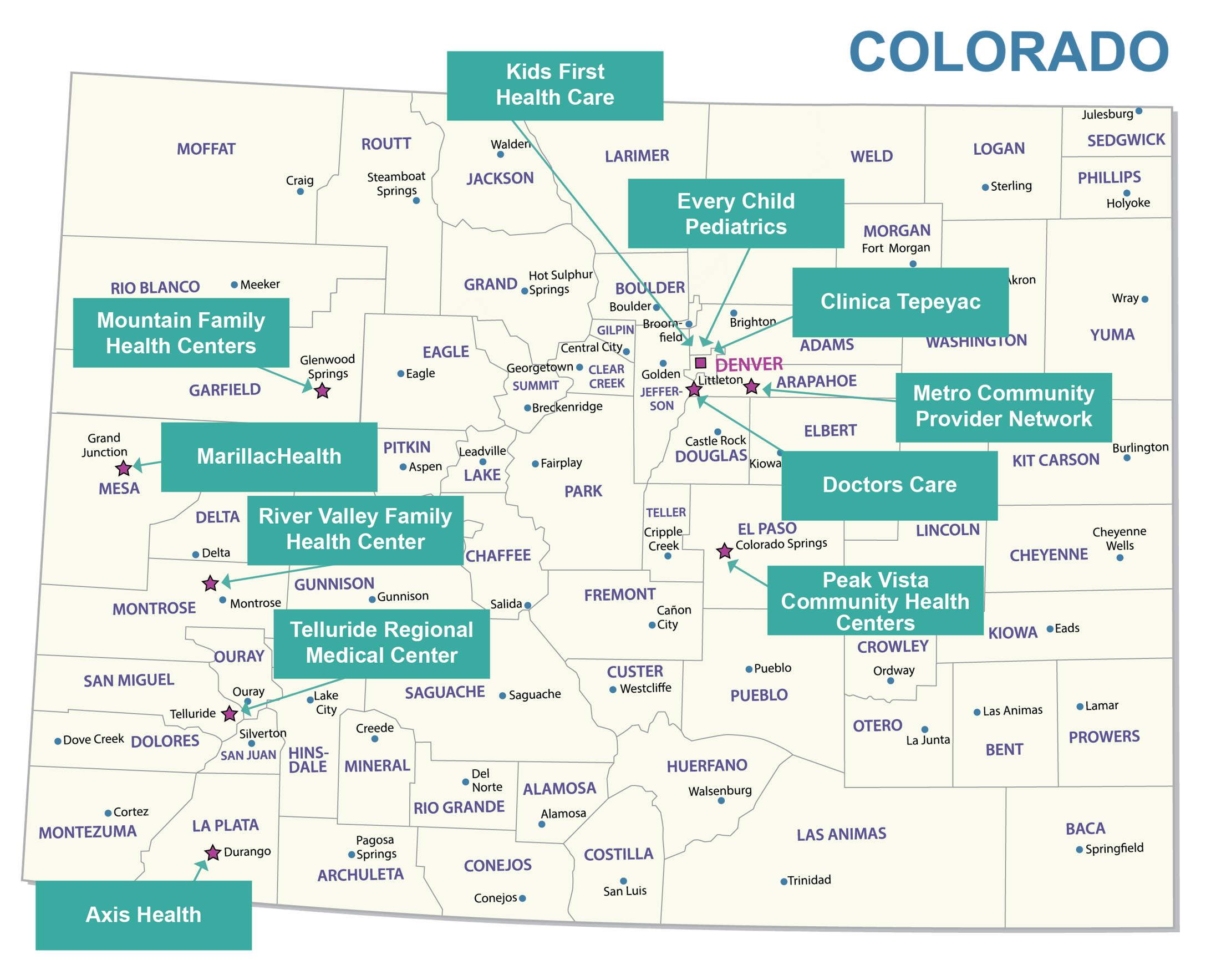Colorado Contraceptive Access Change Project
Ensuring access to unbiased information about contraceptive options and the ability to be provided their contraceptive method of choice, without delay or cost barriers, is critical to supporting families in deciding if, when, and under what circumstances they have a child.
Safety net clinics, particularly federally qualified health centers, are a critical access point for health care services in Colorado and serve more than 170,000 women of childbearing age. Yet many safety net providers lack systems and structures in their practice settings to support universal access to contraceptive services.
Funded by the Collaborative from January 2019 – March 2021, the Colorado Contraceptive Access Change Project (CCACP) sought to address enduring gaps by convening a Learning Collaborative across 11 primary and pediatric care safety net providers in Colorado.
The Collaborative contracted with CAI, Inc., a global nonprofit organization dedicated to improving the quality of health care and social service delivery, to plan and implement all activities associated with launching and running the Learning Collaborative. Grounded in a reproductive justice framework, the Learning Collaborative worked to increase participating clinics’ capacity to provide Coloradans comprehensive, non-coercive, culturally responsive, patient-centered contraceptive counseling and services.
Across the two-year project period, clinic teams composed of providers, administrative, and executive leadership staff worked to establish and strengthen systems to improve access to contraception that addressed leadership and continual quality improvement processes, financing and stocking, policies and protocols, workflow, staff training, and client engagement.
Key Outcomes
At the end of the two-year period, clinics reported progress across a number of critical areas for increasing contraceptive access:
Telehealth
100% of agencies implemented or rapidly innovated telehealth services to provide all types of health care, including sexual and reproductive health care, throughout the COVID-19 pandemic.
Billing
38% increase in agencies that identified standard billing codes, and 60% increase in health center staff trained in billing codes.
Same-day LARC provision
100% increase in agencies with a written policy offering same-day insertion of IUDs or implants.
47% increase in the percentage of agencies offering same-day insertion of IUDs or implants always or most of the time.
Patient Experience
100% of agencies implemented the Interpersonal Quality of Family Planning Care Scale three times across the two years of the Learning Collaborative; 79% of interactions across agencies met criteria for a “positive patient experience.”
Reproductive Justice
73% of agencies provided training/education on reproductive justice to their staff, reaching more than 280 staff across 11 agencies.
Opportunities for the Future
The tremendous work completed by CAI and the 11 safety net clinics in Colorado illustrated future opportunities to continue to improve access to health care for Coloradans, including:
Foster leadership to increase innovations and build momentum.
Establish policies in Colorado that reduce or remove contraceptive cost barriers.
Build a trained and competent health care provider community.
Tackle disparities by addressing implicit bias and promoting reproductive justice in health care settings.
Standardize documentation of contraceptive care in electronic health records (EHRs).

